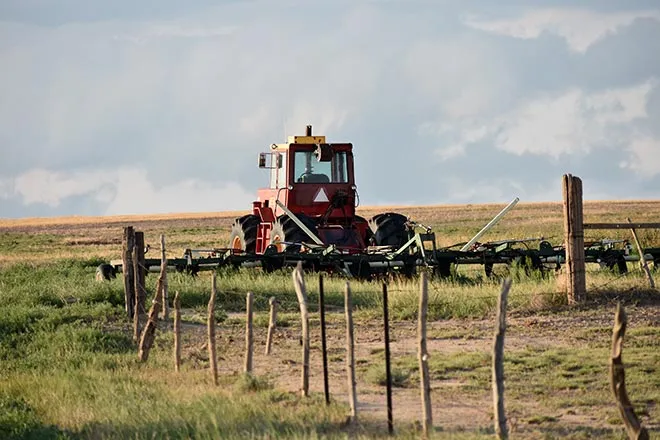
Daily Audio Newscast - March 13, 2024
News from around the nation.
Biden secures Democratic nomination; White House announces $300 million military aid package for Ukraine; Washington tribe receives funding to return forest lands to tribal stewardship; Massachusetts diaper distribution program helps families make ends meet; Possibility of wildlife-to-human crossover heightens CWD worries in Minnesota.
TRANSCRIPT
[music] The Public News Service-Story Newscast, March the 13th, 2024.
I'm Matt Clifford.
With a win in Georgia, Joe Biden now has the delegates needed to win the Democratic presidential nomination.
At the same time, Donald Trump will pick up more delegates as he dominated the GOP primary with more than 80 percent of the vote in that state.
And with new aid for Ukraine installed on the Congress since December, the White House on Tuesday announced it had cobbled together another $300 million in military assistance to use as a stopgap measure.
That from ABC News.
They report the package includes munitions and rounds to help Ukraine hold the line against Russia's brutal attacks for the next couple of weeks.
Next to Washington state, where a tribe is getting funding to return forest lands to tribal stewardship.
Details from Eric Tegedorf.
The Washington state legislature has approved $25 million in Climate Commitment Act funding to the Quinault Indian Nation on the Olympic Peninsula to purchase 11,000 acres of privately owned forest lands on their reservation.
Quinault Indian Nation President Guy Capone says the Climate Commitment Act is an important law for the state.
It shows that the efforts of not only the nation, but the state as a whole and the concern for habitat and the environment is real.
The Climate Commitment Act was passed in 2021 and created a cap and invest program to reduce the state's greenhouse gas emissions. 10 percent of revenue generated is committed to tribes.
The Nature Conservancy in Washington has partnered with the tribe on the purchase.
And supporters of a federal pilot program to distribute diapers to low-income families in Massachusetts hope to build upon its success.
More than 1 million diapers, along with wipes and other needed supplies, have helped some 1,600 families over the past several months.
Adriana Leo with Community Action, Inc. in Haverhill says the program gives parents with limited budgets a chance to get ahead.
If a family knows that they have the diaper supply to send their child to care, they also know that they can then go to work.
There are school programs that they're going to be covered and their child's going to be comfortable.
Leo says enrolled families have received 100 diapers each month, giving them the financial flexibility to cover other basic needs.
More than one-third of Massachusetts families say they can't afford enough diapers for their children.
Diaper distribution is just one strategy to help families make ends meet, in addition to direct cash payments.
WIC and SNAP funds cannot be used for diaper purchases.
The bill has already advanced to the House Ways and Means Committee.
That's encouraging news to Mary Marte with North Shore Community Action Programs.
She says for years, parents have reported the challenge of paying rent and going without diapers at the end of the month.
I'm Catherine Karley reporting.
MassCAP, a coalition of more than 20 community action agencies, has awarded more than $1 million in federal aid to distribute diapers for kids across Massachusetts and western Connecticut.
This is Public News Service.
Infectious disease researchers say that deer hunters are on the front lines of what could be a serious threat to public health, chronic wasting disease.
We get more in this KFF Health News Minnesota News Service collaboration.
KFF Health News reports that animal disease scientists are alarmed about the rapid spread of CWD in deer.
Recent research shows the barrier to a spillover into humans is less formidable than previously thought and that the prions causing the disease may be evolving to become more able to infect humans.
A response to the threat is ramping up with 68 global experts coming together on the initiative.
The University of Minnesota's Michael Osterholm says while this is still just a potential, they don't want to be caught off guard.
We have to understand that if we do have a spillover, we're going to be way at the end of the curve, you might say, in terms of what we can do about it.
First discovered in 1967, chronic wasting disease has been found in animals in at least 32 states.
Difficult to eradicate, it causes brain deterioration before the infected animal dies.
I'm Mike Moen.
And in the face of anti-LGBTQ legislation and the tragic loss of a non-binary teen in Oklahoma, an Alabama group is working to provide what it calls a space of hope and support.
Hometown Organizing Project hosts monthly virtual spaces as a platform for LGBTQ+ people to share their stories and build connections.
According to Executive Director Justin Vest, the aim is to bring people together from rural parts of the state and help meet their needs through solidarity, mutual aid, advocacy, policy work, or community projects.
These community gatherings really are about creating that place of belonging where folks can come together, we can share and process our rage, our grief, but most importantly, build that community, have that space of belonging.
Inside of the world, it is trying really hard to say that we don't belong as trans and queer folks.
Vest also emphasizes the value of the gender justice community gatherings in providing education and creating a call to action.
Shantia Hudson reporting.
Finally, Joe Ulore reports in this Mirror Indie Solutions Journalism Indiana News Service collaboration that the Indiana jazz legend John Leslie West Montgomery is being celebrated.
A historic marker bearing the name John Leslie West Montgomery now stands near the Indianapolis Cultural Trail, not far from the home where Wes and his wife raised seven children.
The Indiana-born guitarist was known for his unusual technique of plucking the strings with the side of his thumb and for his extensive use of octaves.
His son Rob, now 62 years old, fondly discusses his father's legacy and love.
He had a passion for music.
I mean, his whole family was musical.
His siblings, his mom, gospel singer, her and my aunt.
I mean, it's just in the blood.
This is Mike Clifford for Public News Service.
Here is on radio stations big and small, your favorite podcast platform.
Find your trust indicators at publicnewsservice.org.

















